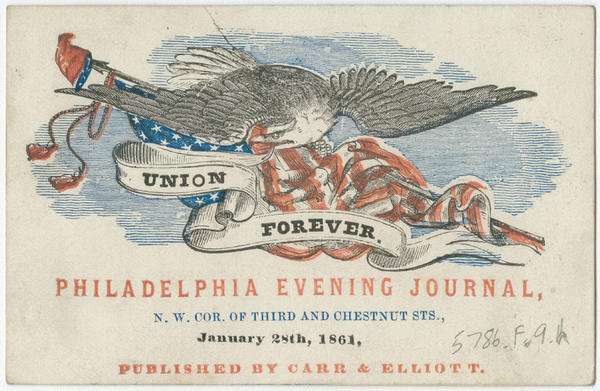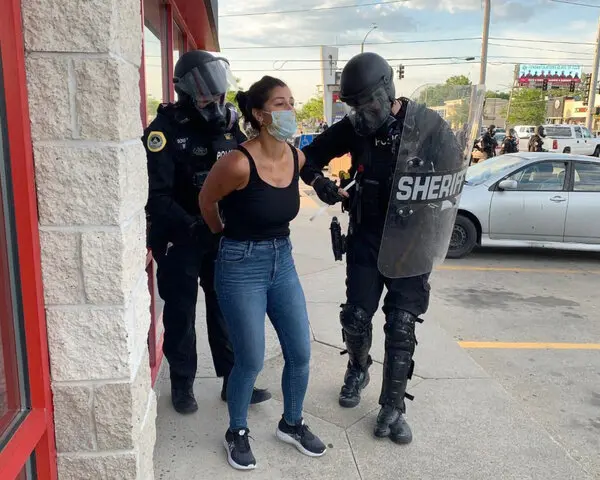Freedom of the Press and The Civil War
Photo courtesy of: medium.com
Most Americans embrace their rights to Freedom of the Press, especially when it comes to government. After all, we as U.S. citizens have a duty to challenge the government and hold it accountable.
Some may wonder though whether the government has jurisdiction to suppress voices of the press during wartime. Well, according to the events during the Civil War, it turns out that they do.
The Civil War took place from 1861-1865. Although President Abraham Lincoln had initially signed the Emancipation Proclamation in 1863 ordering for the liberation of enslaved people, slavery did not officially end until the passing of the Thirteenth Amendment in 1865.
Contrary to a common misconception, President Lincoln was not genuinely concerned about freeing enslaved people, but rather preserving the union. The restriction of Freedom of the Press was implemented when Lincoln discontinued the writ of habeas corpus, which allows individuals charged with a crime to be brought before a court to dictate whether the detainment is legitimate.
Photo courtesy of: mtsu.edu
Technology had evolved in the years preceding the Civil War with the invention of telegraph lines. Journalists who had initially benefited from telegraph lines were deprived of this right at the beginning of the Civil War; Lincoln's reasoning in censoring telegraph dispatches was to prevent members of the press from disseminating a firsthand account of the plans and events of troops on the battefield.
This decison was later debated in The House Judiciary Committee, who essentially argued that it was unconstitutional for the government to forbid telegraph communications unless under command from Congress. Northern newspapers were often critical of Lincoln's propositions pertaining to the Civil War.
Consequently, members of the press who published pieces opposing Lincoln or stipulations included in the war drafts were charged with treason. Furthermore, journalists who were charged were imprisoned without an opportunity to stand trial.
Their careers were also tarnished, as the Lincoln administration discontinued their newspapers, which were no longer delivered through the mail services. One case that made headlines during the Civil War was the prosecution of Albert D. Boileau, who was an editor of the Philadelphia Evening Journal.
Photo courtesy of: digital.librarycompany.org
Unbeknownst to Boileau, an attorney and orator by the name of William Bradford Reed wrote an article advocating for serenity between union and confederate states as opposed to the continuation of war, which he considered to be a waste of soldiers and monetary resources. Reed also admonished Lincoln in the article alleging that his goal was to incite a revolt between the Confederacy and newly liberated African Americans.
Following the publication of Reed's piece in the Philadelphia Evening Journal, Major General Robert C. Schneck immediately demanded his general to apprehend Boileau and transport him to Maryland for imprisonment. Many neighboring newspapers condemned Boileau's incarceration, claiming that exercising his freedom of the press rights was not a crime and that Lincoln's actions reflected that of a dictator.
I resent Lincoln's stratagem to have the press arrested for denouncing his policies pertaining to the Civil War or just the war itself. First of all, it is during wartime especially when Americans need to be kept abreast of what is going on, as it affects our daily lives and safety.
Secondly, I find it rather immature that Lincoln seriously had people put in jail for speaking out against him. Challenging and criticizing the government is an inevitable aspect of being a journalist.
Also, part of life means understanding that we are going to have critics and haters regardless of who or what we are. Everybody is not going to like or agree with us, but again, that is life.
If Lincoln did not have the maturation or resilience to accept that, then he had no business being president or any type of leader for that matter. As I researched this topic, it reminded me of a story about Andrea Sahouri, a reporter for the Des Moines Register.
In May 2020, Sahouri was arrested while covering a story at a Black Lives Matter protest even when she claimed she provided identification to police. She was later aquitted on charges of failing to disperse, as her defense attested that she was simply doing her job.
Photo courtesy of: nytimes.com
Link: https://www.youtube.com/watch?v=KJr9PiN7wqg
Regardless, there needs to be more attention brought to cases such as this because the government does not have the authority to infringe on freedom of the press rights, and if they do, then they should face litigation. I, for one, am not afraid to sue the government for violating my constitutional rights and I will do it in a heartbeat if I need to.
Photo courtesy of: freedompress.com
Sources: https://papers.ssrn.com/sol3/papers.cfm?abstract_id=3908746









No comments:
Post a Comment